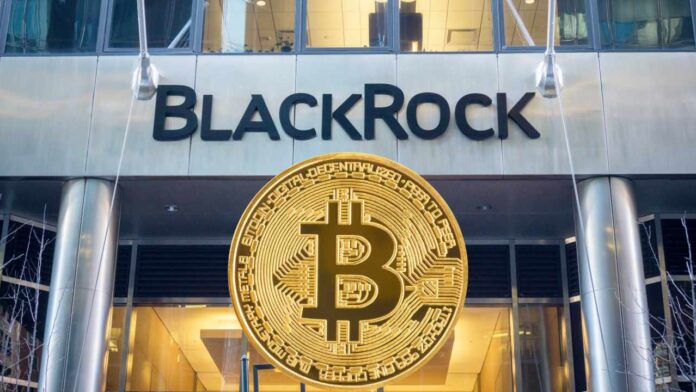BlackRock’s latest move to bolster its Bitcoin exchange-traded fund (ETF) by adding major Wall Street firms to the fold signals a notable shift in the financial landscape. This development not only underscores the growing appetite for cryptocurrency among institutional investors but also marks a significant step toward mainstream financial acceptance of digital assets.
As the world’s largest asset manager, BlackRock’s foray into the realm of cryptocurrency with a Bitcoin ETF has been closely watched by market participants. The recent addition of heavyweight Wall Street firms to its Bitcoin ETF portfolio exemplifies a broader trend of traditional financial institutions warming up to cryptocurrencies. This pivot points to a recognition of Bitcoin’s maturing market and its potential to offer diversified investment opportunities.
The integration of these major firms into BlackRock’s Bitcoin ETF initiative is poised to enhance the fund’s liquidity and market depth, thereby attracting a wider array of institutional investors. This move is indicative of a growing consensus among traditional financial entities that cryptocurrencies, particularly Bitcoin, constitute a viable asset class. The involvement of Wall Street stalwarts lends credibility to the cryptocurrency sector, potentially easing the way for more conservative investors to explore digital asset investments.
BlackRock’s strategy reflects a calculated response to the burgeoning interest in cryptocurrencies, suggesting a belief in the long-term viability of Bitcoin and possibly other digital assets. This approach is likely to influence the broader market, setting a precedent for other asset managers and financial institutions contemplating entry into the crypto space.
The implications of BlackRock’s updated Bitcoin ETF extend beyond mere market dynamics. This initiative is a harbinger of the evolving relationship between traditional finance and the cryptocurrency sector. As more institutional players enter the crypto space, we may witness an era of increased regulatory clarity, improved market infrastructure, and greater innovation in financial products and services centered around digital assets.
Moreover, BlackRock’s engagement with Bitcoin through its ETF could catalyze further acceptance and integration of cryptocurrencies in conventional financial systems. As institutional investment grows, the cryptocurrency market is expected to become more stable and less volatile, making it a more attractive option for a broader spectrum of investors.
This trend also reflects the shifting perceptions of Bitcoin and other cryptocurrencies from speculative instruments to legitimate components of diversified investment portfolios. The entry of established financial institutions into the crypto market is likely to spur the development of more sophisticated and regulated crypto financial products, thereby enhancing the overall ecosystem.
The narrative of BlackRock’s Bitcoin ETF, enriched by the participation of Wall Street’s titans, is a testament to the transformative journey of cryptocurrency from the fringes to the forefront of the financial sector. This journey encapsulates the gradual dismantling of barriers between the traditional financial world and the innovative realm of digital currencies.
BlackRock’s update to its Bitcoin ETF, marked by the inclusion of major Wall Street firms, represents a pivotal moment in the integration of cryptocurrency into mainstream finance. This development not only highlights the growing institutional interest in digital assets but also sets the stage for future advancements in the cryptocurrency market. As this trend unfolds, it will likely shape the trajectory of both the financial industry and the evolving digital economy.


